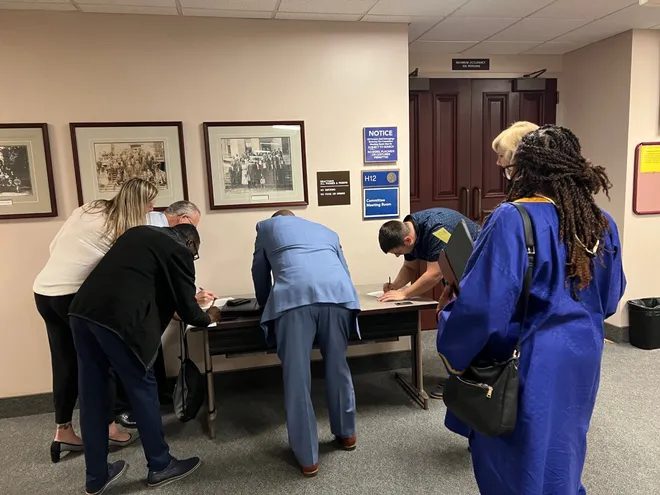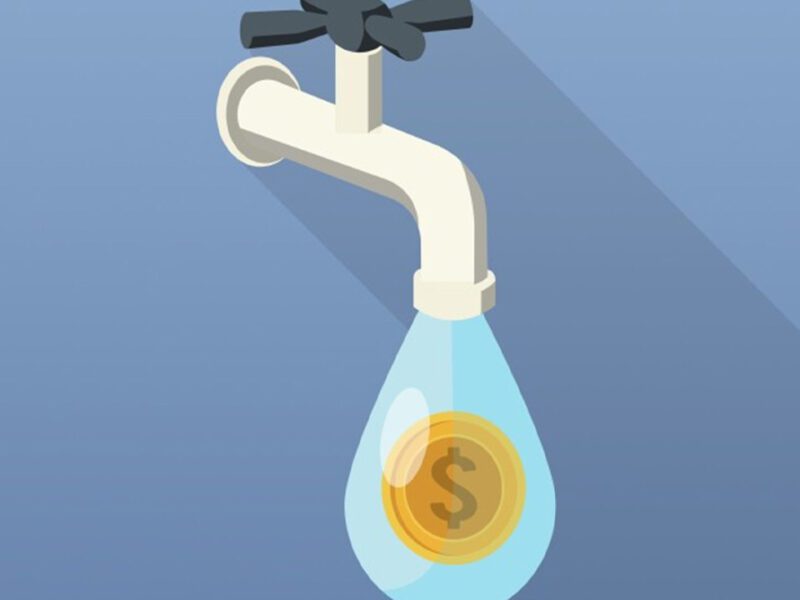
House puts price tag on universal school voucher plan critics find hard to believe
Tallahassee Democrat | By James Call | February 23, 2023
A Florida House committee Thursday attached a price tag to a universal school voucher plan that opponents argue used “fuzzy math” to lower the actual fiscal impact to the public-school budget.
Taxpayer funded scholarships for all Florida students to pay tuition at private and religious schools is a priority for House Speaker Paul Renner – hence its designation as HB 1.
A companion measure, SB 202, is advancing in the Senate with the support of Senate President Kathleen Passidomo.
The current voucher system steers about 10% of the PreK-12 budget, or $1.6 billion, to private, charter and religious schools.
Cost for proposed school voucher plan ranges from $4 billion to $209 million
Estimated cost for what the conservative Americans for Prosperity call a “transformational plan” varies from a high of $4 billion for both proposals by the liberal Florida Policy Institute, but the House said its plan comes in at $209 million.
With more than 2.9 students eligible for a $7,400 annual scholarship, parents, classroom teachers, and school board members found the House estimate suspect.
“I think you need to challenge the assumptions made in the cost estimate. We have to get the math right to protect all of the students,” said Kathy Baines, when the public got to address lawmakers.
Would school choice lead to school closings, resegregation?
House sponsor Rep. Kaylee Tuck, R-Lake Placid, said HB 1 provides “universal … freedom for parents to make choices that best suit their child’s educational needs,” when they are not satisfied with their public school.
As the proposal moves through the Legislature opponents argue it will lead to school closings and a resegregation of the school system by economic status, with low-income students trapped in bankrupt schools.
Rep. Daniel Alvarez, R-Riverview, asked Tuck to account for the wide gap between the House and FPI estimates.
Tuck explained about a quarter of the FPI estimate would not come from the education budget because it represents scholarship money students are already using to go to private schools.
The Institute also did not include a provision that diverts much of the voucher program to the Florida Tax Credit Scholarship, funded through tax credits given to businesses for contributions to the FTC and not from the line item for schools.
“And the Institute includes all currently enrolled private school students, but not all Florida private school students actually accept the scholarship,” said Tuck, complimenting staff for drilling down into the data and producing what she said is “the most accurate” estimate.
Would parents of current private school students apply for taxpayer funded voucher?
Members of the audience did accept the premise that 50% of private school students would not apply for a taxpayer funded voucher.
Dr. Sue Woltanski, Monroe County School District Board.
“It’s nonsensical to believe that half of the families currently paying to send their children to these private schools will not apply to get the free money. Of course they will.”
Woltanski said 43% of Monroe County school’s state funds are consumed by the voucher program now and the new program will make that number grow higher.
She told the panel Florida should learn from the experiences of New Hampshire and Arizona, where lawmakers underestimated the cost to expand their voucher programs, and be prepared to fund scholarships for all Florida students.
A spokesman for the AFL-CIO, which counts the state’s teacher union as a member, dismissed the House estimate for failing basic math.
Rich Templin, the group’s policy director, said the calculation is simple: the number of students eligible multiplied by the amount the voucher is worth.
“They are using calculus for something that can be answered with multiplication. This is fuzzy math,” said Templin.
The House assumes 116,603 current private school students not receiving a voucher will become eligible under HB 1, but half will not apply.
“Which of those families is not going to accept a $7,400 tax rebate? So, if we just multiply that up, we’re looking at billions of dollars. This is the same obfuscation that was used in Arizona to pass their universal voucher law, and they’re being crushed by the program,” said Templin.
Senate’s plan differs from House proposal. Here’s what is different
The committee voted 9 –3, along party lines to advance the bill. There is one more committee stop before a debate on the House floor.
The companion measure, SB 202, has cleared one committee and has two more committee stops before it is introduced in the Senate.
The Senate plan differs from the House in that it :
- Allow school districts to use some state funds currently intended to raise starting teacher pay to go toward increasing the salaries of other full-time instructional personnel;
- Remove a graduation requirement to take an online class in high school;
- Expand the timeframe of a temporary teaching certificate from three to five years;
- Require the state Board of Education to offer revisions or repeals to the current education law in Florida and provide recommendations to the governor and the Florida Legislature in 2024.
Differences between the two plans will be worked out during the 60-day legislative session that begins March 7.





